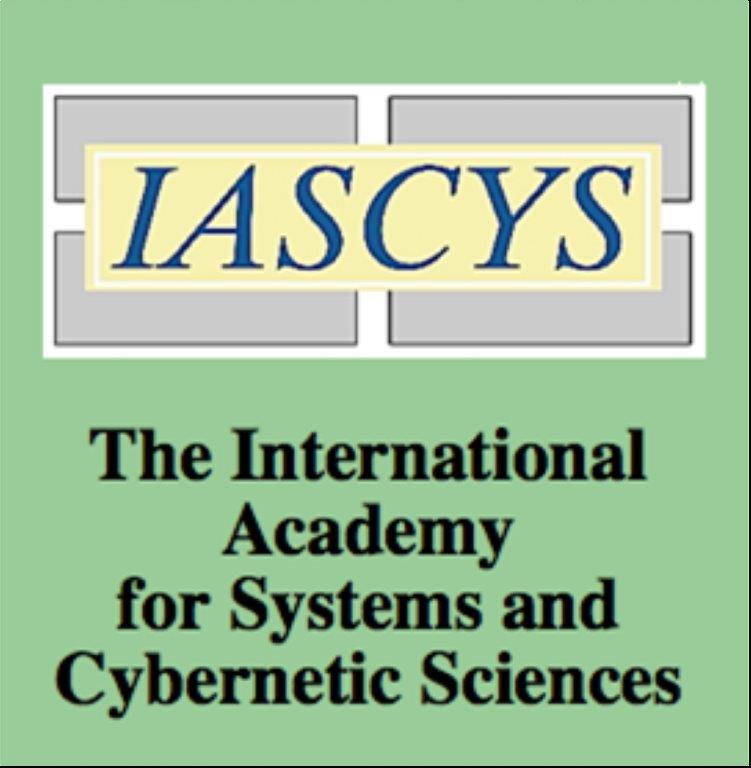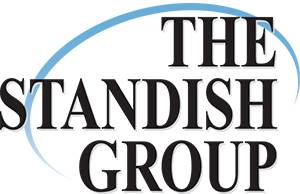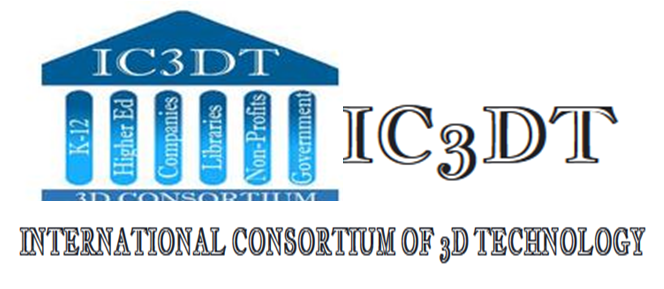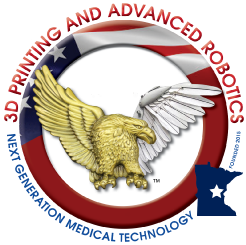Proceedings of the 25th World
Multi-Conference on
Systemics, Cybernetics and Informatics: WMSCI 2021
FOREWORD
Our purpose in the 25th World Multi-Conference
on Systemics, Cybernetics and Informatics (WMSCI 2021) is to provide,
in these increasingly related areas, a multi-disciplinary
forum, to foster interdisciplinary communication among the
participants, and to support the sharing process of diverse perspectives
of the same transdisciplinary concepts and principles.
Systemics, Cybernetics and Informatics (SCI) are being increasingly related to each other in almost every scientific discipline and human activity. Their common transdisciplinarity characterizes and communicates them, generating strong relations among them and with other disciplines. They work together to create a whole new way of thinking and practice. This phenomenon persuaded the Organizing Committee to structure WMSCI 2021 as a multi-conference where participants may focus on one area, or on one discipline, while allowing them the possibility of attending conferences from other areas or disciplines. This systemic approach stimulates cross-fertilization among different disciplines, inspiring scholars, originating new hypothesis, supporting production of innovations and generating analogies; which is, after all, one of the very basic principles of the systems’ movement and a fundamental aim in cybernetics.
WMSCI 2021 was organized and sponsored by the International Institute of Informatics and Systemics (IIIS, www.iiis.org), member of the International Federation of Systems Research (IFSR). The IIIS is a multi-disciplinary organization for inter-disciplinary communication and integration, which includes about 5000 members. Consequently, a main purpose of the IIIS is to foster knowledge integration processes, interdisciplinary communication, and integration of academic activities. Based on: 1) the transdisciplinarity of the systemic approach, along with its essential characteristic of emphasizing relationships and integrating processes, and 2) the multi-disciplinary support of cybernetics’ and informatics’ concepts, notions, theories, technologies, and tools, the IIIS has been organizing multi-disciplinary conferences as a platform for fostering inter-disciplinary communication and knowledge integration processes.
In the specific case of Systemics, Cybernetics and Informatics (SCI), the IIIS is an organization dedicated to contribute to the development of the Systems Approach, Cybernetics, and Informatics potential, using both: knowledge and experience, thinking and action, theory and practice, for:
These IIIS objectives have oriented the organizational efforts of yearly WMSCI/ISAS/IMSCI/CISCI conferences since 1995.
On behalf of the Organizing Committee, I extend our heartfelt thanks to:
The names and affiliation of both kinds of reviewers are listed in these proceedings. We extend our gratefulness to all of them. The scholarly quality of the authors and the reviewers is what define the quality of the conference and its respective proceedings. Consequently, our gratitude is to the members of the programs’ committees, both kinds of reviewers and the collaborating authors.
A total of 725 reviews made by 436 reviewers from 65 countries (who made at least one review) contributed to the quality achieved in WMSCI 2021. This means an average of 4.71 reviews per submission (154 submissions were received). Each registered author had access, via the conference web site, to the reviews that recommended the acceptance of their respective submissions. Each registered author could also get information about: 1) the average of the reviewers’ evaluations according to 8 criteria, and the average of a global evaluation of his/her submission; and 2) the comments and the constructive feedback made by the reviewers, who recommended the acceptance of his/her submission, so the author would be able to improve the final version of the paper.
In the organizational process of WMSCI 2021, about 154 articles were submitted. These pre-conference proceedings include about 88 papers that were accepted for presentation from 29 countries (35 countries taking into account the presentations in collocated events). I extend our thanks to the invited sessions’ organizers for collecting, reviewing, and selecting the papers that will be presented in their respective sessions. The submissions were reviewed as carefully as time permitted; it is expected that most of them will appear in a more polished and complete form in scientific journals. This information about WMSCI 2021 is summarized in the following table, along with the other collocated events:
This information about WMSCI 2021 is summarized in the following table, along with the other collocated conferences:
All submissions were peer reviewed by the two-tier reviewing methodology of the International Institute of Informatics and Systemics (IIIS, www.iiis.org). As it might be noticed, from the table above, 4.71 reviews were made, in average, for each submission we received. After the conference is over, the names of the reviewers will be published on the IIIS web site along with the titles of the papers each reviewer reviewed. This means that what had been a double-blind review, up to the conference, is transformed to single-blind review, after the conference is over. In this way, each author would have information about the names of the reviewers of his/her submission, but not vice-versa. Likewise, each author would know how many reviewers reviewed his/her submission and relate it to the average, being informed in the above table, of 4.71 reviews per paper.
Our two-tier reviewing methodology meet two different objectives of peer-review: 1) to improve the paper via non-anonymous reviewers (non-blind reviews) and 2) to improve the acceptance/non-acceptance decision of the Organizing Committee via traditional anonymous reviewers (double-blind reviews) A recommendation to accept, made by non-anonymous reviews, is a necessary condition, but it is not a sufficient one. A submission, to be accepted, should also have a majority of its double-blind reviewers recommending its acceptance. These two necessary conditions generate a more reliable and rigorous reviewing than any of those reviewing methods, based on just one of the indicated methods, or just on the traditional double-blind reviewing.
We extend our gratitude to the invited sessions’ organizers: Prof. Elina Gaile-Sarkane, Prof. Shigehiro Hashimoto, Prof. Natalja Lace, Prof. Inga Lapina, and Dr. Elena F. Ruiz Ledesma; as well as to the special track co-chairs and the co-editors of these proceedings, for the hard work, energy and eagerness they displayed preparing their respective sessions. We express our intense gratitude to Professor William Lesso (1931-2015) for his wise and timely, adequate and valuable tutoring, for his eternal energy, integrity, and continuous support and advice, as the Program Committee Chair of past conferences (since 1981), as well as for being a very caring old friend and intellectual father to many of us. We also extend our gratitude to Professor Belkis Sánchez, who brilliantly managed the organizing process.
Our gratitude to Professors Bela H. Banathy, Stafford Beer, George Klir, Karl Pribram, Paul A. Jensen, and Gheorghe Benga who dignified our past WMSCI conferences by being their Honorary Presidents.
We would like also to extend our gratefulness to Professor Shigehiro Hashimoto for his yearly support in the last 20 years as well as for his editorial work for the journal; as well as to Professor Grandon Gill, Dr. Jeremy Horne, Professor Thomas Marlowe, Professor Matthew E. Edwards, Dr. Robert Cherinka, Eng. Joseph Prezzama, Dr. Fr. Joseph Laracy, and Dr. Russell Jay Hendel, for their continuous advice and support in the conferences they participated in, along the last 12 years; as well as in the conferences they were not able to participate in. Their advices and the kind of care they provided us with are highly valued and appreciated.
We also extend our gratitude to the following scholars, researchers, and professionals who generously accepted to deliver keynote addresses or to organize invited sessions.
Plenary Keynote Speakers (ordered by their presentations succession)
Professor Shigehiro Hashimoto, Japan, Kogakuin University, Dean, Faculty of Engineering, Former Associate to the President, Doctor of Engineering and Doctor of Medicine.
Dr. Mario LaManna, Italy/USA, Evoelectronics (Italy), and Selex-SI (USA), Senior Scientist and Project Leader, Projects in the fields of defense and security.
Professor Rusudan Makhachashvili, Ukraine, Borys Grinchenko Kyiv University, Head of Romance Languages and Typology Department.
Professor Ivan Semenist, Ukraine, Borys Grinchenko Kyiv University, Head of Oriental Languages and Translation Department.
Dr. Risa Blair, USA, Grantham University, Academic Manager – Instructional Design, eLearning Instructional Designer, Education Management, Instructional Associates, Director of HR and Operations.
Dr. Marcia Williams, USA, Post University.
Dr. Russell Jay Hendel, USA, Towson University, Dept. of Mathematics, doctoral program at the Spertus Institute for a degree in Jewish studies.
Dr. James Lipuma, USA, New Jersey Institute of Technology, Director of the Collaborative for Leadership Education, and Assessment Research (CLEAR)
Professor Steve Dixon, Singapore, President of LASALLE College of the Arts in Singapore.
Dr. Rossella Marzullo, Italy, Mediterranea University of Reggio Calabria, scientific director of the II level Master on the rehabilitation of minors from deprived environments and mafia families.
Dr. Pawel Poszytek, Poland, Foundation for the Development of the Education System, General Director, Member of working groups of the European Commission and the Ministry of National Education of Poland.
Dr. Richard Segall, USA, Arkansas State University, Department of Computer and Information Technology, Neil Griffin College of Business.
Professor T. Grandon Gill, University of South Florida, USA, College of Business, Director of the Doctorate in Business Administration, Editor-in-Chief of Informing Science, Editor of the Journal of IT Education.
Professor Emeritus Thomas Marlowe, USA, Seton Hall University, Department of Mathematics and Computer Science, PhD in Computer Science and PhD in Mathematics.
Dr. Fr. Joseph R. Laracy, USA, Seton Hall University, Department of Systematic Theology & Department of Mathematics and Computer Science.
Mrs. Emma Almingefeldt, Sweden, The University of Borås, Faculty of Library, Information, Education and IT.
Professor Elina Gaile-Sarkane, Latvia, Riga Technical University, Dean of the Faculty of Engineering Economics and Management (FEEM).
Dr. Ekaterini Nikolarea, Greece, University of The Aegean, Lesvos, School of Social Sciences, Department of Geography.
Dr. Robert Cherinka, USA, MITRE Corporation, Chief Engineer, Software Engineering Technical Center at MITRE.
Mr. Joseph Prezzama, Msc., USA, MITRE Corporation, Group Leader for the Joint Operations Southeast, Tampa office of the MITRE Corporation.
Dr. Fr. Joseph R. Laracy, USA, Seton Hall University, Department of Systematic Theology & Department of Mathematics and Computer Science.
Professor Emeritus Thomas Marlowe, USA, Seton Hall University, Department of Mathematics and Computer Science, PhD in Computer Science and PhD in Mathematics.
Dr. Jeremy Horne, USA, President-emeritus of the Southwest Area Division, American Association for the Advancement of Science (AAAS).
Invited Sessions Organizers (Alphabetical Order)
Professor Elina Gaile-Sarkane, Latvia, Riga Technical University, Dean of the Faculty of Engineering Economics and Management (FEEM).
Professor Shigehiro Hashimoto, Japan, Kogakuin University, Dean, Faculty of Engineering, Former Associate to the University President. Doctor of Engineering and Doctor of Medicine. Biomedical Engineering.
Professor Natalja Lace, Latvia, Riga Technical University, Head of Department of Corporate Finance and Economics, Faculty of Engineering Economics and Management (FEEM).
Professor Inga Lapina, Latvia, Riga Technical University, Vice Dean for Academic Affairs, Faculty of Engineering Economics and Management (FEEM).
Dr. Elena F. Ruiz Ledesma, Mexico, Instituto Politécnico Nacional.
Many thanks to the members of the Organizing Committee and to those who chaired special tracks. We would also like to express our special gratefulness to Professor Thomas Marlowe. Professor T. Grandon Gill, Dr. Jeremy Horne, Professor Shigehiro Hashimoto, Dr. Russell Jay Hendel, Professor Michael Savoie, Professor Hsing-Wei Chu, Dr. Robert Cherinka, and Eng. Joseph Prezzama, for their generosity in providing support with their advices and for answering our inquiries, as well as for their spontaneous and timely alerts. Thank you so very much.
Our gratefulness is also extended to the organizations that provided scientific, academic, professional, or corporate co-sponsorships in this conference and/or previous ones. The following are among these organizations:
Special thanks to Dr. Jeremy Horne, Dr. Harvey Hyman, Dr. Robert Cherinka, Eng. Joseph Prezzama, and Ms. Molly Youngblood Geiger (Google Partners Community Ambassador) for their efforts in helping us with the identification of above shown co-sponsors.
Professor Nagib C. Callaos, Ph.D.
Systemics, Cybernetics and Informatics (SCI) are being increasingly related to each other in almost every scientific discipline and human activity. Their common transdisciplinarity characterizes and communicates them, generating strong relations among them and with other disciplines. They work together to create a whole new way of thinking and practice. This phenomenon persuaded the Organizing Committee to structure WMSCI 2021 as a multi-conference where participants may focus on one area, or on one discipline, while allowing them the possibility of attending conferences from other areas or disciplines. This systemic approach stimulates cross-fertilization among different disciplines, inspiring scholars, originating new hypothesis, supporting production of innovations and generating analogies; which is, after all, one of the very basic principles of the systems’ movement and a fundamental aim in cybernetics.
WMSCI 2021 was organized and sponsored by the International Institute of Informatics and Systemics (IIIS, www.iiis.org), member of the International Federation of Systems Research (IFSR). The IIIS is a multi-disciplinary organization for inter-disciplinary communication and integration, which includes about 5000 members. Consequently, a main purpose of the IIIS is to foster knowledge integration processes, interdisciplinary communication, and integration of academic activities. Based on: 1) the transdisciplinarity of the systemic approach, along with its essential characteristic of emphasizing relationships and integrating processes, and 2) the multi-disciplinary support of cybernetics’ and informatics’ concepts, notions, theories, technologies, and tools, the IIIS has been organizing multi-disciplinary conferences as a platform for fostering inter-disciplinary communication and knowledge integration processes.
| Multi-disciplinary conferences are
organized by the IIIS as support for both intra-
and inter-disciplinary communication.
Processes of intra-disciplinary communication are mainly achieved
via traditional paper presentations in corresponding disciplines,
while conversational sessions, regarding trans- and inter-disciplinary
topics, are among the means used for inter-disciplinary communication.
Intra- and inter-disciplinary communications might generate co-regulative
cybernetic loops, via negative feedback, and synergic
relationships, via positive feedback loops, in which both kinds
of communications could increase their respective effectiveness.
Figure 1 shows at least two cybernetic loops if intra- and inter-disciplinary
are adequately related. A necessary condition for the effectiveness
of Inter-disciplinary communication is an adequate level of variety
regarding the participating disciplines. Analogical thinking
and learning processes of disciplinarians depend on it, which
in turn are potential sources of the creative tension required for
cross-fertilization among disciplines and the generations of new
hypotheses. An extended presentation regarding this issue can be
found at: www.iiis.org/MainPurpose |

|
In the specific case of Systemics, Cybernetics and Informatics (SCI), the IIIS is an organization dedicated to contribute to the development of the Systems Approach, Cybernetics, and Informatics potential, using both: knowledge and experience, thinking and action, theory and practice, for:
- The identification of synergistic relationships among Systemics, Cybernetics and Informatics, and between them and society.
- The promotion of contacts among the different academic areas, through the transdisciplinarity of the systems approach.
- The identification and implementation of communication channels among the different professions.
- The supply of communication links between the academic and professional worlds, as well as between them and the business world, both public and private, political and cultural.
- The stimulus for the creation of integrative arrangements at different levels of society, as well as at the family and personal levels.
- The promotion of trans-disciplinary research, both on theoretical issues and on applications to concrete problems.
These IIIS objectives have oriented the organizational efforts of yearly WMSCI/ISAS/IMSCI/CISCI conferences since 1995.
On behalf of the Organizing Committee, I extend our heartfelt thanks to:
- The 397 members of the Program Committee from 54 countries (including the PC members of the events organized in its context and jointly with WMSCI 2021). Almost all the members of the Program Committee are authors or co-authors sessions’ best papers, i.e. papers selected by the respective audience as the best paper of the session in which they were presented;
- The 336 additional reviewers, from 65 countries, for their double-blind peer reviews; and
- The 100 reviewers, from 37 countries, for their efforts in making the non-blind peer reviews. (Some reviewers supported both: non-blind and double-blind reviewing for different submissions).
The names and affiliation of both kinds of reviewers are listed in these proceedings. We extend our gratefulness to all of them. The scholarly quality of the authors and the reviewers is what define the quality of the conference and its respective proceedings. Consequently, our gratitude is to the members of the programs’ committees, both kinds of reviewers and the collaborating authors.
A total of 725 reviews made by 436 reviewers from 65 countries (who made at least one review) contributed to the quality achieved in WMSCI 2021. This means an average of 4.71 reviews per submission (154 submissions were received). Each registered author had access, via the conference web site, to the reviews that recommended the acceptance of their respective submissions. Each registered author could also get information about: 1) the average of the reviewers’ evaluations according to 8 criteria, and the average of a global evaluation of his/her submission; and 2) the comments and the constructive feedback made by the reviewers, who recommended the acceptance of his/her submission, so the author would be able to improve the final version of the paper.
In the organizational process of WMSCI 2021, about 154 articles were submitted. These pre-conference proceedings include about 88 papers that were accepted for presentation from 29 countries (35 countries taking into account the presentations in collocated events). I extend our thanks to the invited sessions’ organizers for collecting, reviewing, and selecting the papers that will be presented in their respective sessions. The submissions were reviewed as carefully as time permitted; it is expected that most of them will appear in a more polished and complete form in scientific journals. This information about WMSCI 2021 is summarized in the following table, along with the other collocated events:
This information about WMSCI 2021 is summarized in the following table, along with the other collocated conferences:
| Conference | # of submissions received | # of reviewers that made at least one review | # of reviews made | Average of reviews per reviewer | Average of reviews per submission | # of papers included in the proceedings | % of submissions included in the proceedings |
| WMSCI 2021 | 154 | 436 | 725 | 1.66 | 4.71 | 88 | 57.14 % |
| IMSCI 2021 | 55 | 227 | 380 | 1.67 | 6.91 | 23 | 41.82 % |
| WMSCI & IMSCI 2021 | 209 | 663 | 1105 | 1.67 | 5.29 | 111 | 53.11 % |
| CISCI 2021 | 55 | 274 | 448 | 1.64 | 8.15 | 43 | 78.18 % |
| TOTAL | 264 | 937 | 1553 | 1.66 | 5.88 | 154 | 58.33 % |
All submissions were peer reviewed by the two-tier reviewing methodology of the International Institute of Informatics and Systemics (IIIS, www.iiis.org). As it might be noticed, from the table above, 4.71 reviews were made, in average, for each submission we received. After the conference is over, the names of the reviewers will be published on the IIIS web site along with the titles of the papers each reviewer reviewed. This means that what had been a double-blind review, up to the conference, is transformed to single-blind review, after the conference is over. In this way, each author would have information about the names of the reviewers of his/her submission, but not vice-versa. Likewise, each author would know how many reviewers reviewed his/her submission and relate it to the average, being informed in the above table, of 4.71 reviews per paper.
Our two-tier reviewing methodology meet two different objectives of peer-review: 1) to improve the paper via non-anonymous reviewers (non-blind reviews) and 2) to improve the acceptance/non-acceptance decision of the Organizing Committee via traditional anonymous reviewers (double-blind reviews) A recommendation to accept, made by non-anonymous reviews, is a necessary condition, but it is not a sufficient one. A submission, to be accepted, should also have a majority of its double-blind reviewers recommending its acceptance. These two necessary conditions generate a more reliable and rigorous reviewing than any of those reviewing methods, based on just one of the indicated methods, or just on the traditional double-blind reviewing.
We extend our gratitude to the invited sessions’ organizers: Prof. Elina Gaile-Sarkane, Prof. Shigehiro Hashimoto, Prof. Natalja Lace, Prof. Inga Lapina, and Dr. Elena F. Ruiz Ledesma; as well as to the special track co-chairs and the co-editors of these proceedings, for the hard work, energy and eagerness they displayed preparing their respective sessions. We express our intense gratitude to Professor William Lesso (1931-2015) for his wise and timely, adequate and valuable tutoring, for his eternal energy, integrity, and continuous support and advice, as the Program Committee Chair of past conferences (since 1981), as well as for being a very caring old friend and intellectual father to many of us. We also extend our gratitude to Professor Belkis Sánchez, who brilliantly managed the organizing process.
Our gratitude to Professors Bela H. Banathy, Stafford Beer, George Klir, Karl Pribram, Paul A. Jensen, and Gheorghe Benga who dignified our past WMSCI conferences by being their Honorary Presidents.
We would like also to extend our gratefulness to Professor Shigehiro Hashimoto for his yearly support in the last 20 years as well as for his editorial work for the journal; as well as to Professor Grandon Gill, Dr. Jeremy Horne, Professor Thomas Marlowe, Professor Matthew E. Edwards, Dr. Robert Cherinka, Eng. Joseph Prezzama, Dr. Fr. Joseph Laracy, and Dr. Russell Jay Hendel, for their continuous advice and support in the conferences they participated in, along the last 12 years; as well as in the conferences they were not able to participate in. Their advices and the kind of care they provided us with are highly valued and appreciated.
We also extend our gratitude to the following scholars, researchers, and professionals who generously accepted to deliver keynote addresses or to organize invited sessions.
Plenary Keynote Speakers (ordered by their presentations succession)
Professor Shigehiro Hashimoto, Japan, Kogakuin University, Dean, Faculty of Engineering, Former Associate to the President, Doctor of Engineering and Doctor of Medicine.
Dr. Mario LaManna, Italy/USA, Evoelectronics (Italy), and Selex-SI (USA), Senior Scientist and Project Leader, Projects in the fields of defense and security.
Professor Rusudan Makhachashvili, Ukraine, Borys Grinchenko Kyiv University, Head of Romance Languages and Typology Department.
Professor Ivan Semenist, Ukraine, Borys Grinchenko Kyiv University, Head of Oriental Languages and Translation Department.
Dr. Risa Blair, USA, Grantham University, Academic Manager – Instructional Design, eLearning Instructional Designer, Education Management, Instructional Associates, Director of HR and Operations.
Dr. Marcia Williams, USA, Post University.
Dr. Russell Jay Hendel, USA, Towson University, Dept. of Mathematics, doctoral program at the Spertus Institute for a degree in Jewish studies.
Dr. James Lipuma, USA, New Jersey Institute of Technology, Director of the Collaborative for Leadership Education, and Assessment Research (CLEAR)
Professor Steve Dixon, Singapore, President of LASALLE College of the Arts in Singapore.
Dr. Rossella Marzullo, Italy, Mediterranea University of Reggio Calabria, scientific director of the II level Master on the rehabilitation of minors from deprived environments and mafia families.
Dr. Pawel Poszytek, Poland, Foundation for the Development of the Education System, General Director, Member of working groups of the European Commission and the Ministry of National Education of Poland.
Dr. Richard Segall, USA, Arkansas State University, Department of Computer and Information Technology, Neil Griffin College of Business.
Professor T. Grandon Gill, University of South Florida, USA, College of Business, Director of the Doctorate in Business Administration, Editor-in-Chief of Informing Science, Editor of the Journal of IT Education.
Professor Emeritus Thomas Marlowe, USA, Seton Hall University, Department of Mathematics and Computer Science, PhD in Computer Science and PhD in Mathematics.
Dr. Fr. Joseph R. Laracy, USA, Seton Hall University, Department of Systematic Theology & Department of Mathematics and Computer Science.
Mrs. Emma Almingefeldt, Sweden, The University of Borås, Faculty of Library, Information, Education and IT.
Professor Elina Gaile-Sarkane, Latvia, Riga Technical University, Dean of the Faculty of Engineering Economics and Management (FEEM).
Dr. Ekaterini Nikolarea, Greece, University of The Aegean, Lesvos, School of Social Sciences, Department of Geography.
Dr. Robert Cherinka, USA, MITRE Corporation, Chief Engineer, Software Engineering Technical Center at MITRE.
Mr. Joseph Prezzama, Msc., USA, MITRE Corporation, Group Leader for the Joint Operations Southeast, Tampa office of the MITRE Corporation.
Dr. Fr. Joseph R. Laracy, USA, Seton Hall University, Department of Systematic Theology & Department of Mathematics and Computer Science.
Professor Emeritus Thomas Marlowe, USA, Seton Hall University, Department of Mathematics and Computer Science, PhD in Computer Science and PhD in Mathematics.
Dr. Jeremy Horne, USA, President-emeritus of the Southwest Area Division, American Association for the Advancement of Science (AAAS).
Invited Sessions Organizers (Alphabetical Order)
Professor Elina Gaile-Sarkane, Latvia, Riga Technical University, Dean of the Faculty of Engineering Economics and Management (FEEM).
Professor Shigehiro Hashimoto, Japan, Kogakuin University, Dean, Faculty of Engineering, Former Associate to the University President. Doctor of Engineering and Doctor of Medicine. Biomedical Engineering.
Professor Natalja Lace, Latvia, Riga Technical University, Head of Department of Corporate Finance and Economics, Faculty of Engineering Economics and Management (FEEM).
Professor Inga Lapina, Latvia, Riga Technical University, Vice Dean for Academic Affairs, Faculty of Engineering Economics and Management (FEEM).
Dr. Elena F. Ruiz Ledesma, Mexico, Instituto Politécnico Nacional.
Many thanks to the members of the Organizing Committee and to those who chaired special tracks. We would also like to express our special gratefulness to Professor Thomas Marlowe. Professor T. Grandon Gill, Dr. Jeremy Horne, Professor Shigehiro Hashimoto, Dr. Russell Jay Hendel, Professor Michael Savoie, Professor Hsing-Wei Chu, Dr. Robert Cherinka, and Eng. Joseph Prezzama, for their generosity in providing support with their advices and for answering our inquiries, as well as for their spontaneous and timely alerts. Thank you so very much.
Our gratefulness is also extended to the organizations that provided scientific, academic, professional, or corporate co-sponsorships in this conference and/or previous ones. The following are among these organizations:

|

|

|

|

|


|

|

|

|

|

|
Special thanks to Dr. Jeremy Horne, Dr. Harvey Hyman, Dr. Robert Cherinka, Eng. Joseph Prezzama, and Ms. Molly Youngblood Geiger (Google Partners Community Ambassador) for their efforts in helping us with the identification of above shown co-sponsors.
Professor Nagib C. Callaos, Ph.D.
WMSCI 2021 General Chair
www.iiis.org/Nagib-Callaos
www.iiis.org/Nagib-Callaos


